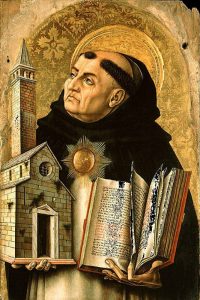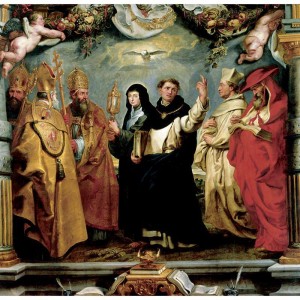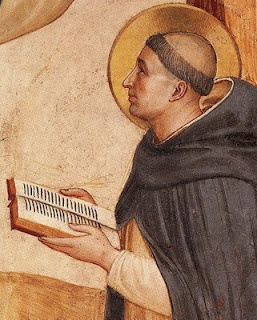Today we liturgically recall great monastic founder and reformer, St Bruno. What we admire and are grateful for in the mission of Bruno is his accent on silence and contemplation in the daily search for the face of God. Pope Benedict offers us a few ideas for meditation. Of course, Benedict few ideas help us to seek the face of the saints in turn who show us the face of God. There is much in Benedict’s meditation for our own journey in the spiritual life and the scope of good, reliable and reason theology.
Redemptoris Mater Chapel, Apostolic Palace
Friday, 6 October 2006, Feast of Saint Bruno
Dear Brothers and Sisters,
I have not prepared a real Homily, only a few ideas for meditation.
 As clearly appears, the mission of St Bruno, today’s saint, is, we might say, interpreted in the prayer for this day, which reminds us, despite being somewhat different in the Italian text, that his mission was silence and contemplation.
As clearly appears, the mission of St Bruno, today’s saint, is, we might say, interpreted in the prayer for this day, which reminds us, despite being somewhat different in the Italian text, that his mission was silence and contemplation.
But silence and contemplation have a purpose: they serve, in the distractions of daily life, to preserve permanent union with God. This is their purpose: that union with God may always be present in our souls and may transform our entire being.
Silence and contemplation, characteristic of St Bruno, help us find this profound, continuous union with God in the distractions of every day. Silence and contemplation: speaking is the beautiful vocation of the theologian. This is his mission: in the loquacity of our day and of other times, in the plethora of words, to make the essential words heard. Through words, it means making present the Word, the Word who comes from God, the Word who is God.
Yet, since we are part of this world with all its words, how can we make the Word present in words other than through a process of purification of our thoughts, which in addition must be above all a process of purification of our words?
How can we open the world, and first of all ourselves, to the Word without entering into the silence of God from which his Word proceeds? For the purification of our words, hence, also for the purification of the words of the world, we need that silence which becomes contemplation, which introduces us into God’s silence and brings us to the point where the Word, the redeeming Word, is born.
St Thomas Aquinas, with a long tradition, says that in theology God is not the object of which we speak. This is our own normal conception.
God, in reality, is not the object but the subject of theology. The one who speaks through theology, the speaking subject, must be God himself. And our speech and thoughts must always serve to ensure that what God says, the Word of God, is listened to and finds room in the world.
Thus, once again we find ourselves invited to this process of forfeiting our own words, this process of purification so that our words may be nothing but the instrument through which God can speak, and hence, that he may truly be the subject and not the object of theology.
In this context, a beautiful phrase from the First Letter of St Peter springs to my mind. It is from verse 22 of the first chapter. The Latin goes like this: “Castificantes animas nostras in oboedentia veritatis”. Obedience to the truth must “purify” our souls and thus guide us to upright speech and upright action.
In other words, speaking in the hope of being applauded, governed by what people want to hear out of obedience to the dictatorship of current opinion, is considered to be a sort of prostitution: of words and of the soul.
The “purity” to which the Apostle Peter is referring means not submitting to these standards, not seeking applause, but rather, seeking obedience to the truth.
And I think that this is the fundamental virtue for the theologian, this discipline of obedience to the truth, which makes us, although it may be hard, collaborators of the truth, mouthpieces of truth, for it is not we who speak in today’s river of words, but it is the truth which speaks in us, who are really purified and made chaste by obedience to the truth. So it is that we can truly be harbingers of the truth.
This reminds me of St Ignatius of Antioch and something beautiful he said: “Those who have understood the Lord’s words understand his silence, for the Lord should be recognized in his silence”. The analysis of Jesus’ words reaches a certain point but lives on in our thoughts.
Only when we attain that silence of the Lord, his being with the Father from which words come, can we truly begin to grasp the depth of these words.
Jesus’ words are born in his silence on the Mountain, as Scripture tells us, in his being with the Father.
Words are born from this silence of communion with the Father, from being immersed in the Father, and only on reaching this point, on starting from this point, do we arrive at the real depth of the Word and can ourselves be authentic interpreters of the Word. The Lord invites us verbally to climb the Mountain with him and thus, in his silence, to learn anew the true meaning of words.
In saying this, we have arrived at today’s two Readings. Job had cried out to God and had even argued with God in the face of the glaring injustice with which God was treating him. He is now confronted with God’s greatness. And he understands that before the true greatness of God all our speech is nothing but poverty and we come nowhere near the greatness of his being; so he says: “I have spoken… twice, but I will proceed no further” [Jb 40: 5].
We are silent before the grandeur of God, for it dwarfs our words. This makes me think of the last weeks of St Thomas’ life. In these last weeks, he no longer wrote, he no longer spoke. His friends asked him: “Teacher, why are you no longer speaking? Why are you not writing?”. And he said: “Before what I have seen now all my words appear to me as straw”.
Fr Jean-Pierre Torrel, the great expert on St Thomas, tells us not to misconstrue these words. Straw is not nothing. Straw bears grains of wheat and this is the great value of straw. It bears the ear of wheat. And even the straw of words continues to be worthwhile since it produces wheat.
For us, however, I would say that this is a relativization of our work; yet, at the same time, it is an appreciation of our work. It is also an indication in order that our way of working, our straw, may truly bear the wheat of God’s Word.
The Gospel ends with the words: “He who hears you, hears me”. What an admonition! What an examination of conscience those words are! Is it true that those who hear me are really listening to the Lord? Let us work and pray so that it may be ever more true that those who hear us hear Christ. Amen!





